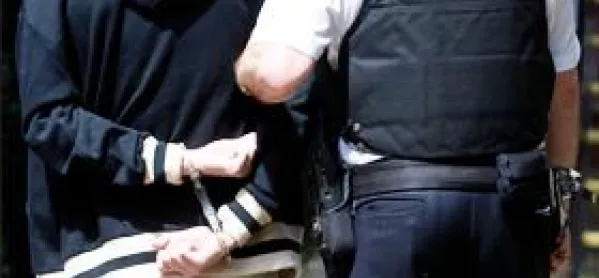Drugs, theft, violence: welcome to college

Police have been called to Scottish college campuses thousands of times over the past five years to deal with an alarming array of concerns, including ones involving dangerous weapons, drugs, indecency, theft and assault.
A Freedom of Information (FoI) request from TESS revealed that a total of 3,729 calls were made from college campus addresses between 2009 and 2013 - 606 of them in the last year alone. The National Union of Students (NUS) Scotland said the figures made “worrying reading” .
Meanwhile, teaching unions said the figures underlined the need for colleges to ensure a safe working environment for students and teachers, at the same time as maintaining a welcoming and open atmosphere.
In the five police divisions which were able to break down their figures by complaint, 107 call-outs related to some form of assault, 69 to alcohol or drugs and 22 to dangerous weapons. A total of 33 calls were linked to indecent assault, sexual offences or indecency, and almost 300 calls related to thefts - an average of more than one a week.
Despite the worrying overall picture, the figures do reveal a certain amount of good news: the total number of call-outs has dropped year-on-year for the past five years, from 921 in 2009 to 606 in 2013.
Police Scotland was unable to specify how many of the calls involved students or college staff, but said that an incident being linked to an address did not necessarily mean it was directly related to the college.
Gordon Maloney, president of NUS Scotland, said: “While it’s comforting to see a decline in the number of offences being reported on our college campuses over time, these figures still make for worrying reading.
“Campuses across Scotland are essentially small communities within larger towns and cities, often with tens of thousands of staff and students. As such, it would be wrong to think they can be immune from crime. However, there is a significant responsibility which rests with college management to minimise the risks and ensure that staff and students are able to work and study in safety.”
Mr Maloney said that student associations across Scotland were doing “great work” on crime education and prevention, including establishing hate-crime reporting sites and distributing personal safety alarms.
A spokesman for the EIS teaching union, which represents college lecturing staff, said it was “essential that all reasonable steps are taken to ensure a safe and secure working environment for both staff and students without damaging the open and welcoming atmosphere that colleges work hard to create”.
He added: “Should any crime be committed, or in cases where staff feel under threat, then a firm line must be taken by the college, including police involvement where appropriate, to ensure the safety of staff and students.”
However, the spokesman stressed that colleges were public places and as a result would inevitably face the same issues with crime as the wider community.
Meanwhile, Glasgow Clyde College principal Susan Walsh said that colleges were “very safe” despite the impression given by the figures, adding that she had witnessed just a handful of incidents over her long career.
In her 28 years in further education, she said those experiences included one assault involving a student with a mental health issue, one student brandishing a knife who was “promptly and appropriately” dealt with by staff, and “one `fracas’ involving non-students entering a building and threatening a student group”.
Ms Walsh added that, at worst, colleges were as safe as any other large public space, and usually safer because of constant monitoring by CCTV and staff.
A spokesperson for Colleges Scotland said that institutions were committed to ensuring the safety of everyone who was on campus.
And a spokeswoman for Unison Scotland, which represents college support staff, said: “Colleges usually show very low numbers of assaults, but this could be due to under-reporting. Further work will be done on this sector once the mergers are all in place.”
Police Scotland emphasised that there could be possible variations in the way information was held by each division.
A spokesperson for the force said that officers “worked closely” with communities across Scotland, including schools, colleges and universities, adding: “Police Scotland has previously published specific information and guidance for students to ensure their time within further education is enjoyable, productive and safe.”
Keep reading for just £1 per month
You've reached your limit of free articles this month. Subscribe for £1 per month for three months and get:
- Unlimited access to all Tes magazine content
- Exclusive subscriber-only stories
- Award-winning email newsletters



